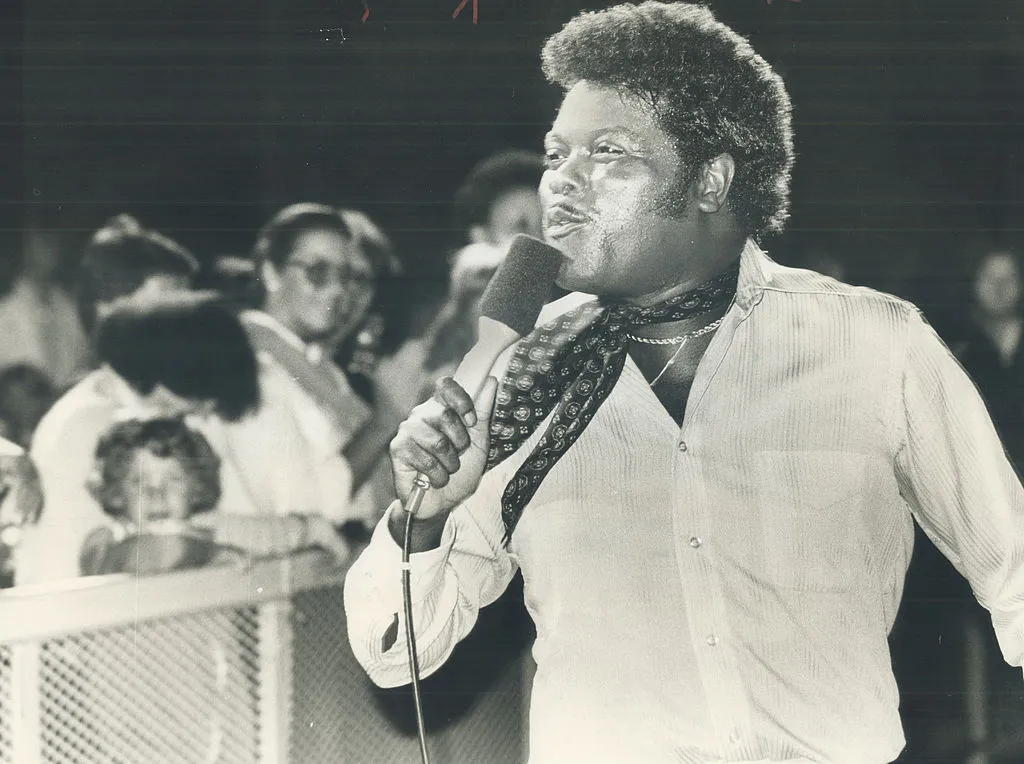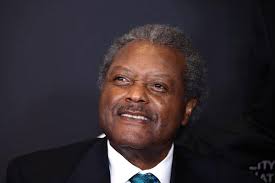
John Edwards: Soul’s Quiet Storm
Early Life and Beginnings
John Edwards, born Jonathan Edwards on December 25, 1944, in St. Louis, Missouri, grew up in a time and place deeply steeped in blues, gospel, and early R&B traditions. Music was an ever-present force in his upbringing, shaped both by his family’s church involvement and the lively soundscape of mid-century St. Louis. Like many African-American artists of his era, Edwards’ first exposure to performance came through the church choir, where he honed his emotive vocal skills and developed a nuanced sense of rhythm and soul.
After a stint in the U.S. Army in the early 1960s, Edwards began to pursue a career in music more seriously. He relocated to Dothan, Alabama, and later to Atlanta, Georgia, where he immersed himself in the Southern soul scene. It was in these locales, away from the major music industry centers, that Edwards first began to gain recognition for his rich, smooth voice—somewhere between the ache of Otis Redding and the silk of Teddy Pendergrass.
Solo Career and Rising Profile
In the early 1970s, John Edwards embarked on a solo recording career. His early work reflected the deep soul traditions of the South, showcasing his expressive delivery and a gift for interpreting emotional lyrics. He signed with Aware Records, an Atlanta-based label, and released several singles that, while not major chart hits, established him as a compelling voice in the genre.
Among these early solo works, the single “The Look on Your Face” gained some regional traction and has since become a cult favorite among deep soul collectors. His 1973 self-titled debut album, John Edwards, featured standout tracks such as “Messing Up a Good Thing”, “I Had a Dream”, and “Vanishing Love.” While these songs didn’t climb high on national charts, they were praised for their craftsmanship and emotional sincerity.
.
.
Another semi-hit, “Careful Man,” in 1974, peaked modestly on the R&B charts, giving Edwards further credibility as a solo artist. His follow-up album, Life, Love and Living, released in 1976, continued to showcase his strengths. However, the commercial breakthrough he sought remained elusive. The music industry was shifting, and Edwards’ Southern soul style, rooted in a more traditional mold, struggled to compete with the increasingly polished disco and funk sound that dominated mid-70s radio.
Joining The Spinners: A New Chapter
In 1977, a pivotal opportunity changed the trajectory of John Edwards’ career. The Spinners, one of the most successful and beloved soul groups of the 1970s, were in transition. Their original lead singer, Philippé Wynne, had departed to pursue a solo career. The group, known for hits like “Could It Be I’m Falling in Love,” “I’ll Be Around,” and “Then Came You,” was seeking a strong new voice to carry on its legacy.
John Edwards was invited to join the Spinners as lead vocalist. His voice, though different from Wynne’s, brought a similar emotional intensity and technical skill. Edwards’ entry marked the beginning of a new era for the group. Although the Spinners’ commercial peak had passed, Edwards helped sustain their creative vitality and touring success for the next two decades.
His first album with the group was Yesterday, Today & Tomorrow (1977), which included tracks like “Me and My Music” and “You’re Throwing a Good Love Away.” Edwards brought a fresh energy, with a slightly huskier vocal tone and a sincere delivery that resonated with both longtime fans and new audiences.
The 1980s: Reinvention and Endurance
As the music industry evolved through the 1980s—with the rise of MTV, synth-heavy production, and the growing dominance of hip-hop and electronic dance—soul groups like The Spinners had to adapt. While they no longer dominated the charts as they did in the previous decade, Edwards helped maintain the group’s presence, particularly on the R&B circuit and in live performances.
Their 1980 hit “Working My Way Back to You/Forgive Me Girl” marked a major comeback. The medley reached No. 2 on the Billboard Hot 100 and was a hit in the UK as well. Edwards’ voice led the song, bringing a renewed spotlight to the Spinners. It was a bright moment that reminded audiences of the group’s enduring appeal.
Another notable single, “Cupid/I’ve Loved You for a Long Time” (1980), also charted well, keeping the group in the public eye. John Edwards’ delivery on these songs showcased his ability to bridge classic soul with a more contemporary sound without sacrificing emotional depth. He wasn’t just a replacement for Wynne—he had become the new voice of the Spinners.
Throughout the 1980s and into the 1990s, the group continued to tour extensively. Edwards, now the face and sound of the Spinners, brought passion and professionalism to the stage. While recording became less frequent, the Spinners maintained a steady schedule of performances, and their songs remained staples on oldies and R&B radio.
Legacy of the Later Years (1990s–2000)
Edwards remained the Spinners’ lead vocalist until the year 2000, anchoring the group during a period when many of their contemporaries faded or disbanded. His ability to maintain vocal consistency, stage presence, and integrity helped sustain the Spinners’ reputation as one of the best live acts in soul music.
During this era, the group became a mainstay on the nostalgia circuit, performing at casinos, festivals, and concert halls across the United States and internationally. Edwards’ voice—deep, resonant, and soulful—remained a reliable vehicle for the group’s classic hits, and fans old and new appreciated his respectful interpretation of the Spinners’ legacy.
After 2000, health concerns led Edwards to step back from full-time touring. He was replaced by Charlton Washington, but Edwards remained a revered figure within the group’s extended family and among soul music aficionados.
Musical Style and Influence
John Edwards’ vocal style combined emotional vulnerability with technical control. He had a wide range—capable of delicate falsetto turns and powerful baritone runs—and a tone that was uniquely his own. While he never attained the solo superstardom of peers like Marvin Gaye or Al Green, Edwards possessed a soul singer’s most important asset: the ability to make listeners feel.
Critics and fans alike have noted that Edwards brought a working man’s honesty to his performances. There was a certain earthiness to his delivery that made his music feel lived-in and genuine. His work with the Spinners added a layer of maturity and groundedness to the group’s already rich catalog.
His ability to step into a beloved group like the Spinners and maintain its integrity was no small feat. Many bands struggle when key members depart, but Edwards didn’t just fill a vacancy—he helped guide the Spinners through two decades of change and reinvention.
.

.
Death and Legacy
John Edwardsdied on May 11, 2025, at the age of 80, leaving behind a legacy defined not by headline-grabbing fame but by quiet, sustained excellence. His death marked the end of an era for those who had followed the evolution of soul music from the church pews to the concert stage.
While he may not be a household name to the casual listener, within the world of classic R&B and soul, John Edwards is revered. His recordings—both solo and with the Spinners—remain deeply loved by collectors and fans who appreciate the depth and richness of his voice.
The Spinners themselves were inducted into the Rock and Roll Hall of Fame in 2023, an honor that validated their influence on American music. While the induction mostly focused on the group’s early hits, there was also acknowledgment of Edwards’ vital role in preserving the group’s legacy during its second act.
Conclusion
John Edwards’ story is not one of explosive stardom, but of steady, soulful craftsmanship. He embodied the values of dedication, humility, and artistic integrity. As a solo artist, he gave voice to the deep emotional current of Southern soul. As lead singer of the Spinners, he carried forward a musical tradition beloved by millions, helping the group navigate changing times while staying true to its roots.
In an industry often driven by ego and flash, John Edwards stood out for his substance. His voice, rich with emotion and honesty, continues to echo in the hearts of soul music fans. Whether on vinyl, radio airwaves, or in memory, his songs endure—testament to a life dedicated to music and the timeless power of soul.
Check out The Spinners on Amazon by clicking here.
If you found this interesting please share it with your friends and family, and check out some of our other articles on Musicians who Died in 2025.
.

